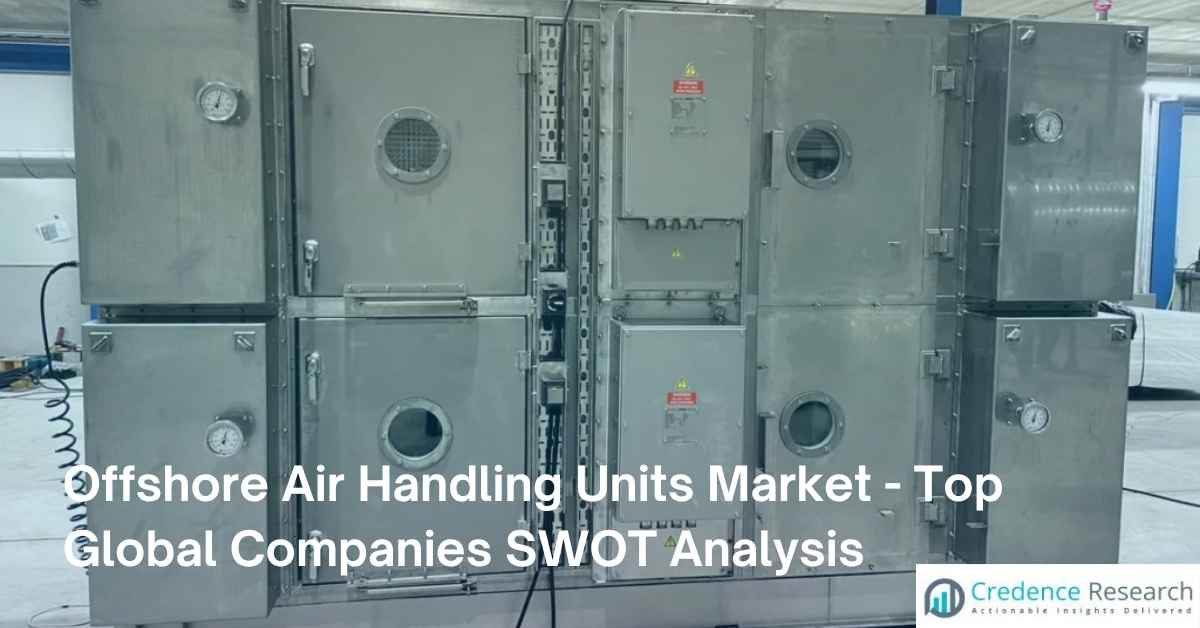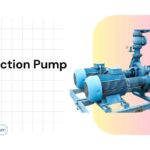Top Offshore AHU/HVAC Companies Overview
|
Company Name |
Country of Origin |
Primary Focus |
Key Strengths Relevant to Offshore AHU |
|
Daikin Industries Ltd. |
Japan |
Global HVAC Leader |
Energy efficiency, anti-corrosion, custom marine solutions |
|
Carrier Corporation |
USA |
Global HVAC & Marine HVAC |
Pioneering marine AC, global service, robust solutions |
|
Johnson Controls |
Ireland/USA |
Global HVAC/R & Marine/Navy |
Market leader in marine/navy HVAC, sustainability focus |
|
Trane Technologies plc |
USA |
Global Climate Innovator |
High-performance AHUs, AI-powered optimization, sustainability |
|
Systemair AB |
Sweden |
Global Ventilation Products |
Energy-optimized AHUs, marine/offshore specific models |
|
BRONSWERK GROUP |
Canada/Netherlands |
Marine HVAC-R & Heat Transfer |
Specialized marine HVAC-R, Subsea Coolers, naval contracts |
|
Drews Marine GmbH |
Germany |
Marine HVAC Solutions |
Custom-built HVAC, global service, air purification |
|
Halton |
Finland |
Demanding Indoor Air Solutions |
HVAC for oil & gas, fire safety, robust products |
|
Heinen & Hopman |
Netherlands |
Marine & Offshore HVAC/R Specialist |
Hazardous zone expertise, tailor-made systems, 24/7 service |
|
Leonardo DRS |
USA |
Defense & Marine Systems |
Navy-grade AHUs, shock-hardened, integrated logistics support |
Daikin Industries Ltd.https://www.daikin.com/
Daikin Industries Ltd. stands as a prominent global leader in the HVAC sector, extending its expertise to specialized marine and offshore applications.
Strengths: Daikin holds a significant estimated global market share of 13.56% in the overall AHU market. The company offers innovative marine climate control solutions and comprehensive support services to shipyards, shipowners, and suppliers. A core strength lies in its focus on energy saving and cost reduction, achieved through advanced inverter and heat pump technologies. Daikin provides dedicated service via an extensive network of marine HVAC contractors and installation engineers. Durability is a key emphasis, with anti-corrosion treatments applied for harsh marine conditions. The company is known for custom-built installations and flexible power supply options to meet precise customer requirements. Its extensive marine product range includes packaged units, small condensing units, deck units, galley series units, and chillers. Financially, Daikin demonstrated strong performance in FY2024, with net sales of 4,752.3 billion yen and an operating profit of 401.7 billion yen.
Weaknesses: Specific market share data for the specialized offshore AHU segment is not explicitly detailed, making a precise assessment of its standing within this niche challenging.
Opportunities: Daikin can capitalize on its expertise in energy-efficient and heat pump technologies to meet the increasing demand for green building certifications and decarbonization efforts in the offshore sector. There is significant potential to expand its customized solutions for the diverse range of offshore vessel types and platforms, aligning with the industry’s trend towards tailored HVAC systems. Further integration of smart technologies, IoT, and AI for predictive maintenance in marine applications can enhance reliability and reduce operational costs for clients.
Threats: The company faces intense competition from other global HVAC giants, such as Carrier and Johnson Controls, as well as specialized marine HVAC players. Fluctuating raw material costs and potential supply chain disruptions could impact production and pricing strategies. The need for continuous R&D investment is critical to keep pace with rapid technological advancements and evolving efficiency standards. Stringent and evolving environmental regulations, particularly refrigerant phase-outs, necessitate continuous adaptation and investment.
Daikin Industries Ltd. – SWOT Analysis Summary
|
Category |
Description |
|
Strengths |
Global AHU market leader, strong marine HVAC portfolio, energy-efficient solutions, anti-corrosion focus, custom installations, robust financial performance. |
|
Weaknesses |
Lack of specific offshore AHU market share data. |
|
Opportunities |
Leverage green tech for offshore decarbonization, expand customized solutions, integrate AI/IoT for predictive maintenance. |
|
Threats |
Intense competition, raw material cost volatility, supply chain disruptions, continuous R&D pressure, evolving environmental regulations. |
Carrier Corporation: – https://www.carrier.com/carrier/en/worldwide/
Carrier Corporation is a globally recognized leader in HVAC solutions, with a deep-rooted history and significant presence in the marine and offshore sectors.
Strengths: Carrier is widely acknowledged as a global leader in maritime air conditioning and refrigeration technology, having pioneered the first shipboard air conditioning system. It holds the position of the world’s leading supplier of chillers to the cruise industry. The company offers a broad portfolio of efficient, customizable solutions for comfort control, air quality, refrigeration, and process cooling across cruise, offshore, and commercial marine segments. Its strong R&D capabilities, exemplified by the AdvanTE3C Solutions Center, are dedicated to developing sustainable solutions for marine applications. Carrier’s products are engineered for durability and safe, efficient performance in demanding situations, with extensive customization options for coatings, materials, and configurations. The company boasts an extensive global service footprint, supported by over 600 dealers, distributors, and parts depots worldwide. Financially, Carrier demonstrates robust performance, with revenue growing 16.7% over the last twelve months to $22.3 billion and a strong order backlog. Recent strategic divestitures in 2024 have allowed Carrier to sharpen its focus on its core HVACR portfolio.
Weaknesses: The company faces inherent vulnerability to ongoing global trade tensions and tariffs, which can negatively impact its profitability. Operational challenges stemming from broader trucking industry issues, such as driver shortages and rising fuel costs, could affect the logistics and timely delivery of its products and components. General market softening and inconsistent freight volumes can also indirectly impact demand and the operational efficiency of its supply chain.
Opportunities: Carrier is well-positioned to expand its capabilities in data center cooling solutions through strategic partnerships, capitalizing on the rapidly growing data center market. There is significant growth potential within its aftermarket and services sector, which analysts suggest could yield substantial revenue multipliers. The industry-wide transition to A2L refrigerants is expected to drive a replacement cycle, creating new sales opportunities. The increasing demand for energy-efficient and smart building solutions provides avenues for product innovation and market penetration. Furthermore, leveraging AI and IoT can enhance supply chain visibility and overall operational efficiency.
Threats: The company faces fierce competitive pressures from other major global HVAC players. Rising operating costs, particularly in logistics and raw materials, could compress profit margins. The potential for continued supply chain disruptions due to geopolitical events or other unforeseen circumstances remains a concern. Continuous innovation is required to meet evolving efficiency standards and customer expectations.
Carrier Corporation – SWOT Analysis Summary
|
Category |
Description |
|
Strengths |
Global leader in marine HVAC, extensive product range, strong R&D, global service network, robust financial performance, strategic focus on core business. |
|
Weaknesses |
Vulnerability to trade tensions, indirect impact from logistics challenges, general market softening. |
|
Opportunities |
Datacenter cooling expansion, aftermarket growth, A2L refrigerant transition, smart/energy-efficient solutions, AI/IoT for supply chain. |
|
Threats |
Intense competition, rising operating costs, supply chain disruptions, need for continuous innovation. |
Johnson Controls – https://www.johnsoncontrols.com/
Johnson Controls is a global diversified technology and multi-industrial leader, with a strong and long-standing presence in the marine and naval HVAC/R market.
Strengths: Johnson Controls is recognized as one of the world’s biggest suppliers of HVAC/R solutions for marine and naval applications, boasting over 130 years of experience in the sector. The company is a global leader in cooling and refrigeration for cruise liners and ferries, a position held for over half a century. It is also a market leader in HVAC solutions for navy vessels, designing equipment to meet stringent naval requirements. Johnson Controls offers a comprehensive range of products, including A/C chiller units, air handling units, fans, HVAC&R automations, and packaged air conditioners. Its global marine services provide a crucial local presence, ensuring on-the-spot assistance for vessels worldwide. The company demonstrates a strong commitment to sustainability, actively minimizing environmental impacts and offering eco-friendly solutions that support decarbonization efforts. Furthermore, it possesses expertise in aging asset management, providing bespoke roadmaps for efficiency and cost-effectiveness, and is expanding its heat pump manufacturing capabilities to meet the growing demand for low-carbon buildings.
Weaknesses: The company acknowledges that achieving its climate goals will heavily depend on reducing supply chain emissions, suggesting potential challenges in this complex area.
Opportunities: Johnson Controls is well-positioned to capitalize on the increasing demand for energy-efficient and low-carbon HVAC systems within the marine sector, particularly with its expanded heat pump production capabilities. Its expertise in smart, healthy, and sustainable building solutions can be leveraged to integrate advanced automation and digital offerings into marine HVAC systems. Expanding its service capabilities, including predictive maintenance and F-gas servicing, can address the increasing complexity and regulatory demands of marine HVAC systems. The company can also benefit from the increasing offshore oil and gas exploration and the expansion of offshore wind farms, both of which drive demand for robust HVAC solutions.
Threats: The company faces intense competition from other major global HVAC players and specialized marine HVAC providers. Continuous investment in R&D is necessary to maintain technological leadership and meet evolving environmental standards. Potential supply chain disruptions could affect material availability and costs. Regulatory changes, such as new refrigerant requirements, necessitate continuous adaptation and compliance efforts.
Johnson Controls – SWOT Analysis Summary
|
Category |
Description |
|
Strengths |
Leading global marine/navy HVAC/R supplier, extensive experience, comprehensive product range, global service network, strong sustainability commitment, aging asset expertise. |
|
Weaknesses |
Lack of specific offshore AHU market share, potential challenges in reducing supply chain emissions. |
|
Opportunities |
Capitalize on energy efficiency/low-carbon demand, integrate smart building tech into marine HVAC, expand predictive maintenance services, benefit from offshore industry growth. |
|
Threats |
Intense competition, continuous R&D investment, supply chain disruptions, evolving regulatory landscape. |
Trane Technologies plc – https://www.tranetechnologies.com/en/index.html
Trane Technologies plc is a global climate innovator, renowned for its extensive HVAC solutions and a strong commitment to sustainability.
Strengths: Trane Technologies boasts a long history in the HVAC industry, providing advanced solutions for thermal management, electrification of heat, and critical environments. A significant strength lies in its strong focus on energy efficiency and sustainability, with a stated aim to decarbonize buildings, industry, and the cold chain. The company offers a range of high-performance air handling units, including its “Performance Climate Changer® Air Handlers,” designed for superior energy efficiency, indoor air quality, and reduced maintenance. Trane also provides custom air handlers engineered for precise performance in challenging applications, incorporating features like advanced thermal barriers, factory-installed controls, and energy-recovery solutions. The company leverages AI-powered solutions, such as “Trane® Autonomous Control powered by BrainBox AI®,” to optimize system performance and drive efficiency. Financially, Trane demonstrates robust performance, with strong bookings and consistent revenue growth, including an 11% increase in Q1 2025 revenues. It is recognized for its reliability and has been voted America’s Most Trusted® HVAC Brand.
Weaknesses: While the company mentions its involvement in projects like the Eurotunnel , direct offshore AHU offerings are not prominently highlighted. The company has also faced operational challenges related to supply chain visibility, which it is addressing through partnerships with IoT technology companies.
Opportunities: Trane Technologies can effectively translate its strong expertise in energy-efficient, high-performance AHUs and smart controls from commercial buildings to the demanding offshore market. Leveraging its AI and IoT capabilities, the company can offer advanced predictive maintenance and optimized climate control solutions specifically tailored for offshore platforms and vessels. Capitalizing on the growing demand for sustainable and low-carbon HVAC solutions in the marine and offshore sectors aligns well with its overarching decarbonization goals. Expanding its focus on “mission-critical environments” to explicitly include offshore applications, which are inherently mission-critical, presents a clear growth avenue.
Threats: A potential threat lies in its currently less explicit focus or established presence in the highly specialized offshore AHU market compared to some competitors, which could act as a barrier to entry for this specific niche. The company faces intense competition from established marine and offshore HVAC specialists. Supply chain disruptions and fluctuations in raw material costs could impact production capabilities and profitability. Furthermore, significant investment may be required to adapt standard AHU products to meet stringent marine and offshore certifications (e.g., DNV, ATEX).
Trane Technologies plc – SWOT Analysis Summary
|
Category |
Description |
|
Strengths |
Global climate innovator, strong focus on energy efficiency/sustainability, high-performance AHUs, custom solutions, AI-powered optimization, robust financials. |
|
Weaknesses |
Limited explicit offshore/marine AHU product lines, ongoing supply chain visibility challenges. |
|
Opportunities |
Adapt building HVAC expertise to offshore, leverage AI/IoT for marine predictive maintenance, capitalize on offshore sustainability demand, expand “mission-critical” focus. |
|
Threats |
Niche market entry barriers, intense competition from marine specialists, supply chain/cost volatility, certification adaptation costs. |
Systemair AB – https://www.systemair.com/
Systemair AB is a leading European supplier of ventilation products, with a global presence and a strategic focus on energy efficiency and sustainability.
Strengths: Systemair is positioned as Europe’s largest supplier of ventilation products, offering a comprehensive range. The company provides energy-optimized air handling units, including large, flexible modular solutions and compact single units. Notably, its “HHFlex” AHUs are specifically identified as suitable for “marine and offshore” applications. Systemair places a strong emphasis on energy efficiency, sustainability, and digitalization, aligning with prevailing market trends. The company offers “Geniox HP” AHUs with integrated reversible heat pumps, which provide comfort cooling and heating, while saving space and simplifying installation. It features a user-friendly control system, “Systemair Access,” with wireless communication for optimized AHU operation. Systemair operates as a global company with sales subsidiaries in 51 countries and 26 production facilities, exporting to over 135 countries, which provides a diversified risk profile. The company maintains a strong financial position, evidenced by rising sales and profits, and a robust balance sheet that supports future investments and strategic acquisitions. Its regionalized production strategy enhances resilience against global trade tariffs.
Weaknesses: While “HHFlex” is mentioned for marine/offshore applications, detailed product specifications or specific offshore project references are limited in the provided information. The company has faced operational challenges due to the absence of effective API security functionality, which posed risks to data communication across its global divisions. Sales in North America experienced a decrease in the United States, although they increased in Canada.
Opportunities: Systemair can capitalize on the growing demand for energy-efficient and sustainable HVAC solutions in the marine and offshore sectors, leveraging its “Geniox HP” and “HHFlex” offerings. There is potential to expand its global presence and market share in offshore applications, particularly in high-growth regions like Asia. Further integration of advanced digital solutions and AI into its AHUs for predictive maintenance and optimized performance, while simultaneously addressing its own API security challenges, can enhance customer offerings. The company’s strong balance sheet provides an avenue for strategic acquisitions to bolster its marine and offshore portfolio.
Threats: Systemair faces intense competition from other global HVAC players and specialized marine/offshore HVAC providers. Ongoing supply chain disruptions and high inflation rates could impact material and labor costs. Geopolitical instability and trade policy decisions, despite its regionalized production, could still pose risks. The continuous need for investment in IT security and system upgrades remains a challenge.
Systemair AB – SWOT Analysis Summary
|
Category |
Description |
|
Strengths |
Leading European ventilation supplier, energy-optimized AHUs, marine/offshore specific models, strong sustainability focus, advanced controls, global presence, robust financials. |
|
Weaknesses |
Limited detailed offshore product specifics, past API security challenges, mixed North American sales performance. |
|
Opportunities |
Capitalize on green offshore demand, expand global offshore market share, enhance digital/AI offerings, strategic acquisitions. |
|
Threats |
Intense competition, supply chain/inflation risks, geopolitical instability, ongoing IT security investment. |
BRONSWERK GROUP – https://bronswerkgroup.com/
BRONSWERK GROUP specializes in marine HVAC-R systems and heat transfer solutions, with a notable presence in naval and offshore applications.
Strengths: BRONSWERK manufactures specialized marine HVAC-R systems known for being cost-effective, easy to maintain, and highly reliable. The company has a long-standing relationship with the Royal Canadian Navy, supplying HVAC-R solutions for Canadian Patrol Frigates since the 1980s. It has secured contracts under the National Shipbuilding Strategy (NSS) in Canada, providing marine-grade HVAC-R systems and equipment. The company possesses expertise in designing low-noise, low-vibration systems with superior pitch and roll tolerance, crucial for marine environments. A unique offering is its “Subsea Coolers,” which provide an energy-efficient, virtually maintenance-free alternative to traditional air-cooled coolers in offshore applications, requiring no platform space or pumps. BRONSWERK places a strong focus on energy efficiency and CO2 reduction in its solutions. All its projects adhere to rigorous global quality standards and are ISO 9000 certified. The company has expanded its Canadian operations by 25% and successfully entered new international markets, including interest from the UK, Australia, and the Netherlands.
Opportunities: The company can further capitalize on the increasing demand for energy-efficient and space-saving solutions in the offshore industry by promoting its Subsea Coolers and other specialized HVAC-R systems. Leveraging its strong relationships with naval clients, BRONSWERK can expand its high-specification solutions to commercial offshore platforms and vessels. Continued investment in R&D for advanced, sustainable marine HVAC-R technologies can solidify its competitive edge. Its expansion into new international markets presents avenues for growth in offshore energy sectors globally.
Threats: The company faces intense competition from larger, more diversified HVAC players and other specialized marine HVAC providers. Maintaining leadership in highly specialized areas requires continuous investment and adaptation to evolving technologies and regulations. Vulnerability to global supply chain disruptions affecting material availability and costs remains a concern, although the company emphasizes being “in control of our processes and foresee where to expect a potential bottleneck”. The highly project-driven nature of its business means revenue can fluctuate based on contract awards.
BRONSWERK GROUP – SWOT Analysis Summary
|
Category |
Description |
|
Strengths |
Specialized marine HVAC-R, naval contract experience, low-noise/vibration systems, unique Subsea Coolers, energy efficiency focus, high quality standards, international expansion. |
|
Opportunities |
Promote Subsea Coolers, expand naval expertise to commercial offshore, R&D in sustainable tech, leverage new international markets. |
|
Threats |
Intense competition, continuous innovation pressure, supply chain vulnerabilities, project-based revenue fluctuations. |
Drews Marine GmbH – SWOT Analysis Summary
|
Category |
Description |
|
Strengths |
Decades of experience, custom-built HVAC solutions, comprehensive marine HVAC range, strong after-sales service, global marine logistics, maritime expertise. |
|
Opportunities |
Capitalize on customized offshore demand, leverage air purification expertise, expand global service, promote sustainability. |
|
Threats |
Intense competition, profitability challenges with customization, supply chain disruptions, R&D investment demands. |
Halton – SWOT Analysis Summary
|
Category |
Description |
|
Strengths |
Expertise in oil & gas HVAC, robust products for demanding conditions, strong fire/blast protection, major classification approvals, global presence, carbon-neutral manufacturing, improved financial performance. |
|
Opportunities |
Capitalize on offshore wind growth, expand safety-critical solutions, leverage sustainability commitment, continue capacity expansion. |
|
Threats |
Intense competition, continuous R&D/regulatory pressure, ongoing supply chain disruptions, geopolitical uncertainties. |
Heinen & Hopman – SWOT Analysis Summary
|
Category |
Description |
|
Strengths |
Expertise in hazardous offshore environments, tailor-made HVAC systems, 24/7 global service, compact AHU designs, strong sustainability focus, AHU refurbishment services. |
|
Opportunities |
Capitalize on offshore wind growth, expand hazardous area solutions, leverage refurbishment services, improve digital field support. |
|
Threats |
Intense competition, R&D/regulatory pressure, supply chain vulnerabilities. |
Leonardo DRS – SWOT Analysis Summary
|
Category |
Description |
|
Strengths |
Leading Navy-grade AHU manufacturer, shock-hardened/compliant products, integrated logistics support, strong financial performance, robust backlog, strategic supply chain focus. |
|
Opportunities |
Expand Navy expertise to commercial offshore, benefit from naval modernization, leverage financial strength for R&D, enhance supply chain resilience. |
|
Threats |
Competition in commercial sector, geopolitical/economic impact on defense, cost-competitiveness for commercial, ongoing supply chain/inflation issues. |
The offshore air handling units market is a specialized, high-value segment driven by the expansion of the global offshore industry, particularly in oil and gas and renewable energy. Its growth is further propelled by an increasing emphasis on energy efficiency, stringent environmental regulations, and a growing awareness of indoor air quality. The market’s future is significantly shaped by technological advancements, with digitalization, IoT, and AI-driven predictive maintenance emerging as critical enablers for enhanced operational reliability and cost reduction in harsh offshore environments.
The regulatory landscape, characterized by complex and evolving international standards and certifications (e.g., DNV, ABS, ATEX, SOLAS), acts as a formidable barrier to entry, favoring established players with deep expertise and substantial resources. These certifications are not merely compliance hurdles but serve as crucial indicators of product quality, safety, and risk mitigation, essential for procurement in a high-stakes environment.
Operational challenges in offshore environments—including extreme weather, severe corrosion, and confined spaces—mandate that AHUs are designed for extreme resilience and durability. This necessitates continuous innovation in material science and protective coatings, making superior material engineering a key competitive advantage. Furthermore, pervasive supply chain vulnerabilities, exacerbated by geopolitical tensions and raw material cost fluctuations, underscore the strategic imperative for manufacturers to prioritize supply chain resilience through diversification and enhanced traceability.
The competitive intensity within the market, coupled with high barriers to entry, fosters a dynamic that favors consolidation and strategic specialization. Leading companies, such as Daikin, Carrier, Johnson Controls, Trane Technologies, and Systemair, leverage their global scale, R&D capabilities, and established networks. Specialized players like Heinen & Hopman, BRONSWERK GROUP, Drews Marine GmbH, Halton, and Leonardo DRS carve out niches through deep domain expertise, custom solutions, and adherence to specific industry standards.











